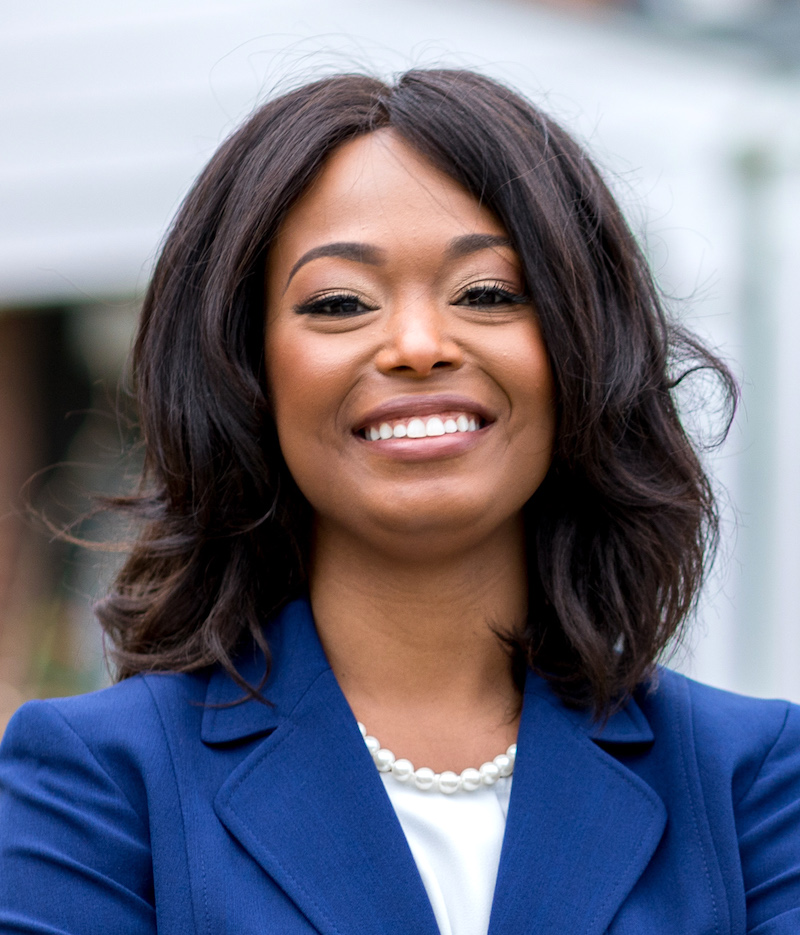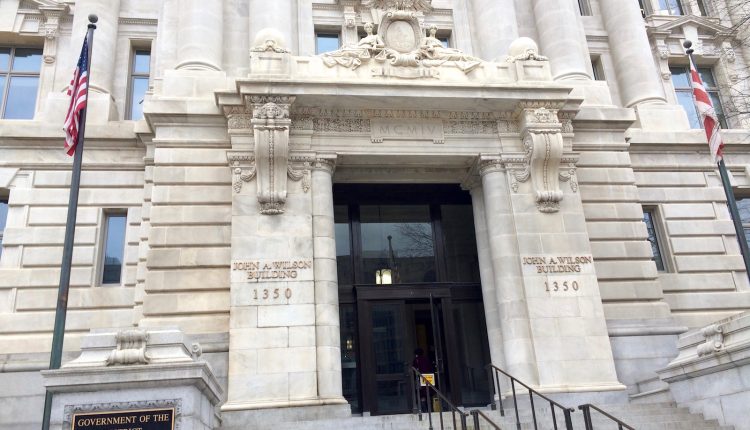Janeese Lewis George: DC’s Fair Elections program exists because voters are sick and tired of council corruption
Voters in Washington will make history next year. For the first time ever, they will have the choice to cast a ballot for candidates taking part in DC’s new Fair Elections program. Across the city, five candidates for DC Council have been certified to participate in the program this year, and I’m proud to be one of them. A sixth, Ward 7’s Anthony Lorenzo Green, announced Sunday that his campaign has now met the requirements to participate.
First and foremost, the Fair Elections program exists to level the playing field so everyday people can compete with the monied interests that usually dominate politics. Pay-to-play politics are corrupting the DC Council, and voters are absolutely tired of it. This is the clear message of Washington Post columnist Colbert King’s July 5 piece, “Choosing subcontractors based on their political connections has become acceptable in DC.” The new report this week about Ward 2 Council member Jack Evans’ serious ethics violations underscore the issue’s significance.

While there are almost too many examples of council members steering contracts to their campaign donors to even pick one to highlight, one of the most egregious is highlighted in that King column: The DC Council’s decision, as described by the Post in a June 28 article, to award a $215 million, five-year, no-bid contract for sports betting to “the head of a marketing company that worked on the political campaigns of Mayor Muriel E. Bowser (D) and her protege, council member Brandon T. Todd (D-Ward 4), and an executive whose company lost a contract at a city homeless shelter because of allegedly falsified documents.” When Maryland did due diligence in 2017 on the same contractor for a similar contract, it rejected them as unqualified. Council members who make these backroom deals fail to properly represent the residents of the communities they serve — and in the process they waste millions of dollars in public funds.
The Fair Elections program puts voters first and invests in better government for all — contrary to the arguments in jonetta rose barras’ recent critique of the program in The DC Line. The program is brand-new this year, so I still get a lot of questions about what it is and how it works. Here’s a quick overview of what it’s about.
Candidates who opt-in and qualify for the program agree to three conditions: 1) We accept no donations from corporations or political action committees, 2) all donations to our campaigns are limited to $50, and 3) we agree to participate in a public debate. In return, the Fair Elections program will match qualified donations $5-to-$1, giving us a way to financially compete with candidates backed by large corporations and wealthy donors.
Participating in the Fair Elections program encourages candidates to fundraise from the grassroots. By the nature of the program, we must build a much larger and more diverse community of support in order to win. The working parents, immigrant families, senior residents, LGBTQI neighbors, people of faith, renters, and young people who chip in $5 or $10 are all powerful donors to our campaigns.
Recently an older gentleman came up to me after an event and handed me $5 as a campaign donation. “I know it’s not much, but I’m a tipped worker and this is what I can afford,” he said. “I am so excited about your campaign. We need someone who cares about people like me.” His $5 means a lot, and he’s right: We need to do everything we can to make leaders prioritize people like him.
This is a growing trend in politics nationwide. As of 2018, 24 municipalities and 14 states — with a total population of 100 million people — have enacted some form of public financing. New York state is currently in the process of creating a public financing program that would share many characteristics of the DC program, including qualifying thresholds, reduced contribution limits, and a $6-to-$1 match. As the Brennan Center for Justice wrote in February, “Countering big money in elections would help transform New York politics. It would free legislators to better represent their constituents. It would bolster the diversity of donors, officeholders, and candidates. It would curb corruption. It would respond to the explosion of civic engagement seen in the 2018 election and boost it further. And it would enhance public confidence.”
Candidates must qualify for these programs. In DC, every ward candidate for the council must secure an initial 150 donations totaling $5,000 before matching funds begin. This is a higher bar to clear than the 250 signatures needed to get on the ballot. And for those who want to see ballot signatures collected earlier in the campaign cycle, I completely agree with you. I don’t want to be standing outside in February more than anyone else does. That’s a suggestion for the DC Board of Elections, however — not Fair Elections.
More fundamentally, these programs are an incredibly worthwhile public investment. Compare the $2.8 million budget for Fair Elections this year to the $215 million awarded in that no-bid sports betting contract. Cronyism on the council costs us money as taxpayers. This program is a fundamental part of what we need to do to be good stewards of democracy.
Fair Elections is allowing for more candidates who are representative of the city’s diversity to have a fighting chance. As Shirley Chisholm said, “If they don’t give you a seat at the table, bring a folding chair.” And I think Fair Elections gives more people the opportunity to bring a folding chair to the table.
Janeese Lewis George is registered with the DC Office of Campaign Finance as a Democratic candidate for the Ward 4 DC Council seat.
About commentaries
The DC Line welcomes commentaries representing various viewpoints on local issues of concern, but the opinions expressed do not represent those of The DC Line. Submissions of up to 850 words may be sent to editor Chris Kain at chriskain@thedcline.org.



Comments are closed.